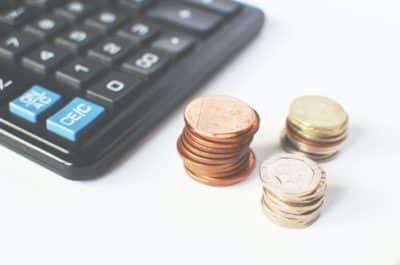The coronavirus has ravaged many nations across the entire world in more ways than one. As of right now, approximately 6.6 million people have applied for unemployment in the United States as many have been laid off from their work or have been forced to work remotely.
This has forced many to adapt to radical ways. One of the most noticeable changes that most haven’t been prepared for is the changes financially. It may be hard to preemptively prepare for these times, but it is essential to manage your personal finances. Here are five tips for you to do so during this pandemic.
IMAGE: PEXELS
Have An Emergency Fund Ready
If this pandemic didn’t teach you the importance of having an emergency fund ready, you are already behind the curve. Emergency funds should be available over the course of a year, and you should have money that will sustain your immediate needs for at least a 3 to 6 month time period at any moment.
During this time, people are dipping into their emergency funds because of the drastic changes their finances took. Emergency funds are used in dire situations where you have little to no other means of taking care of yourself. Ideally, you should be putting a little bit of money into a savings fund each week, but if you haven’t started, there is no better time to do so.
Find a savings account that will yield you a consistent interest rate, and do not touch that money unless you absolutely need it. You can obtain more valuable financial information from Polk Partners.
Reduce Your Debt
In the midst of these difficult times, you may also want to consider getting down as much debt as you can. Many lenders and banks are providing more favorable interest rates and even offer forgiveness, depending on the company. You should inquire with the companies you are associated with to see if you can get better rates and save money.
Also, you will also want to get did of any other debt that is hampering you financially. This primarily includes credit card debt that may go unaddressed. You may not feel the need to spend as much money on things, and therefore, your credit card may not be needed as much. So if you have extra money lying around, you can put a dent in your credit card or student loan debt.
Understand that you will not be able to fully stabilize your financial future if you are indebted to financial organizations. You won’t have as much money for yourself to pursue other endeavors if you always owe other banks and lenders money. Get rid of as much debt as you can during this time, and it will be better for you in the long term.
Find Multiple Streams Of Income
The current pandemic should also make you realize that it is increasingly becoming a necessity to have multiple streams of income. Merely going to work at one location may not suffice to meet your financial needs because it can be quickly taken away from you.
If this were to, unfortunately, happen to you, you should have another source of income to fall back on. This could prove to be a good time for you to discover any skills that you may have. Whether this is graphic design, writing, video editing, or any other skill, you should parlay that into another stream of income by performing independent work.
There are a lot of freelancing websites that can have you get paid for your hard work. Working from behind your laptop in the comfort of your home and making money when you are not working your regular job can be beneficial for you to take care of other aspects of your life.
If you can find a second stream of income that is somewhat stable after the pandemic passes over, you will find that you have more available funds for you to pay off debt, potentially start a business, or more money to put towards a savings fund. Investing is another excellent skill to learn during this time.
Start A Spreadsheet Of Expenses
Remember that your emergency fund should cover at least 3 to 6 months’ worth of expenses, however, if you aren’t able to know if you have enough money to cover those expenses if you don’t track all of your finances. This is where creating a spreadsheet can prove to be useful in carefully tracking how much money you are bringing in and how much you have to take out.
There are apps and other platforms you can use to carefully organize how much money you have to allocate for bills, groceries, utilities, loans, and other finances. You can also track how much you are making (after taxes), and potentially identify areas where you can cut back and possibly save.
Staying organized with your finances is one of the pillars of effective management. You will likely be wiser with your money and how you go about spending if you have a way of identifying patterns and seeing what your finances look like. You could obtain more valuable financial advice by visiting experts at Polk Partners.
Create A Budget
After you have successfully given yourself a rough estimate of how much you have to spend in each area, you will want to make a budget for how much money you can afford in each area. This will help control your spending significantly more and prevent you from spending more than you have to.
Having a budget is one of the best things you can do in times of crisis because you will be carefully rationing out your money and only saving it for the essentials. Budget your money and organize accordingly, and you will be in a much better position financially, even during this pandemic.
If you are interested in even more business-related articles and information from us here at Bit Rebels, then we have a lot to choose from.


COMMENTS